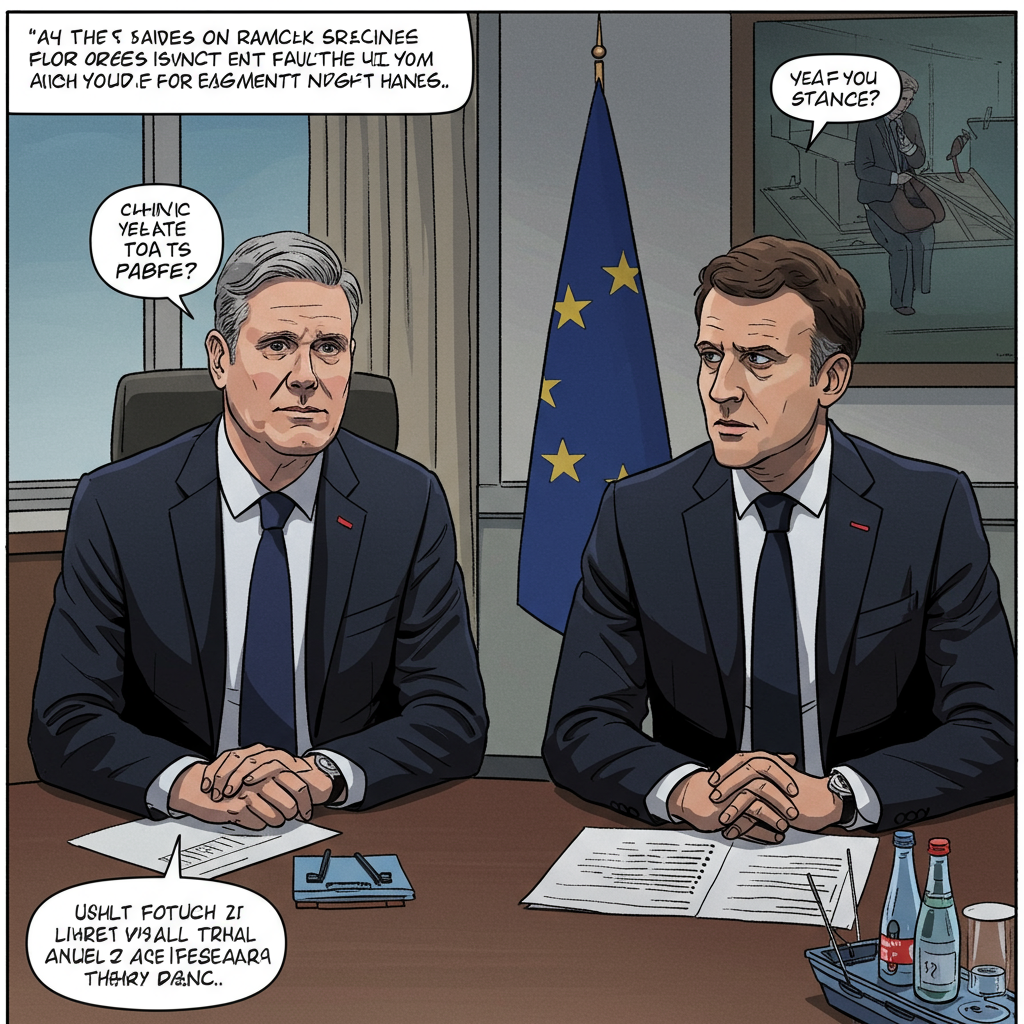Amidst escalating tensions and recent military strikes involving the United States, Israel, and Iran, a consensus among some experts suggests that while conflict with Israel is likely to persist, Iran remains highly unlikely to trigger a full-blown World War III by directly targeting the U.S. Their rationale centers on the Iranian regime’s primary objective: survival.
Experts argue that despite fiery rhetoric, the Iranian leadership, particularly Supreme Leader Ayatollah Ali Khamenei, is fundamentally pragmatic when facing existential threats. Drawing lessons from history, Khamenei, described as a “true believer” in revolutionary principles but with strong survival instincts, is currently in a difficult position. He needs to project strength and retaliate to maintain credibility domestically and regionally but also fears an overly aggressive response that could lead to the regime’s downfall.
“We’re not on the verge of World War III,” stated one expert, emphasizing that while Iran’s capabilities, particularly its missile arsenal, should not be underestimated, the regime’s central goal is self-preservation. Initiating direct conflict with the U.S., which possesses capabilities that could threaten the regime’s existence, is seen as counter to this core objective.
Limited Escalation Against the U.S. Likely
Following recent U.S. strikes on Iranian nuclear sites, experts believe Iran is unlikely to initiate attacks directly against the U.S. military. While a “symbolic reaction” is possible – potentially targeting a U.S. base in the region with advance warning, reminiscent of the response to the 2020 Soleimani killing – a significant, unannounced attack designed to draw the U.S. into a wider war is improbable in the foreseeable future.
However, this cautious approach towards the U.S. does not extend to Israel. Hours after launching dozens of missiles at Israel, experts noted that “Israel is another story.” Iran is expected to “continue what they’re doing in Israel,” possibly increasing ballistic missile attacks. While some analysts suggest an attack on U.S. regional targets isn’t entirely off the table, the prevailing view is that Iran may choose to “take out their anger on Israel” instead of the U.S.
The Nuclear Question and Its Aftermath
Recent U.S. strikes reportedly targeted key Iranian nuclear facilities, including Fordow (under a mountain), Natanz, and Isfahan. Satellite imagery and expert analysis suggest significant damage, particularly at Fordow and to Iran’s stockpile of uranium enriched to 60% purity. Experts indicate these strikes may have “neutralized” Iran’s ability to rapidly enrich this material to weapons-grade levels using existing centrifuges, significantly delaying a potential “breakout” capability.
However, damage assessments remain challenging without more extensive data, and Iranian officials are attempting to downplay the extent of the destruction. More critically, some analyses suggest that the lesson Iran may draw from these events is that being “on the verge of having a nuclear weapon is not enough,” concluding they need a weapon itself. This raises concerns that the conflict could ironically accelerate proliferation, pushing Iran to reconsider its nuclear strategy and potentially pursue enrichment in a hidden location or even withdraw from the Nuclear Non-Proliferation Treaty (NPT).
While Iran has denied seeking a nuclear bomb, and its Supreme Leader has a fatwa against nuclear weapons, the nuclear program is seen by the regime as crucial, despite costing hundreds of billions for minimal energy benefit and no real deterrence so far. Experts note the regime retains irreversible knowledge of the enrichment cycle.
Debate Over Negotiations and the Path Forward
The prospect of resuming nuclear negotiations remains uncertain. While some believe Iran will eventually seek talks again, potentially to salvage some enrichment capability for civilian use, others are more skeptical, deeming a return to the negotiating table “clear that they won’t go back.” Iranian officials have stated they will not negotiate under fire.
Adding complexity, Israeli Prime Minister Benjamin Netanyahu has characterized reports of Iran’s interest in de-escalation and talks as “fake,” designed for Iran to “lie, cheat, string the US along.” Netanyahu has argued that targeting the Iranian regime’s leadership, specifically Khamenei, is necessary to end the conflict, not escalate it, and that Israel is fighting a shared enemy that threatens the “entire world.”
The U.S. administration has reportedly been debating its next steps, with reports suggesting President Trump had approved strikes but paused to see if Iran would abandon its nuclear program. Trump has publicly stated he is “no longer interested in a ceasefire” and is seeking “total and complete victory” against Iran, acknowledging the possibility of striking nuclear sites like Fordow with powerful bombs.
Domestic Stability and Regional Impact
The conflict impacts Iran’s domestic stability. While the regime currently appears unified, external pressure and attacks are seen as creating “cracks in the regime’s wall.” Public sentiment in Iran is complex; while regime supporters are angered, the majority (estimated at 80-85%) reportedly oppose the regime, are fearful of escalation, and do not want war, seeing the conflict as a result of the regime’s choices. Sustained pressure could potentially undermine the regime, although powerful opposition forces have not yet emerged.
Regionally, the conflict exacerbates instability. It risks distracting from the humanitarian crisis in Gaza, though some Gazans reportedly blame the Iranian regime and Hamas for their suffering and see a potential weakening of the regime as positive for Gaza’s future. U.S. allies in the Gulf face risks to energy interests and critical infrastructure via potential cyberattacks or actions by weakened but still capable proxies.
The potential for Iran to disrupt oil shipping, particularly through the Strait of Hormuz, remains a concern, though experts believe Iran is unlikely to risk this as long as oil exports are vital for funding operations. Strikes on domestic energy infrastructure, however, are significant given Iran’s internal energy issues.
Ultimately, experts largely agree that the path forward is fraught with risk. While a direct, full-scale war between the U.S. and Iran seems improbable due to Iran’s focus on regime survival, the conflict with Israel is set to continue. The long-term consequences for Iran’s nuclear program, regional stability, and the future of the Iranian regime remain uncertain, heavily dependent on the decisions made in Washington, Jerusalem, and Tehran in the coming days and weeks.


